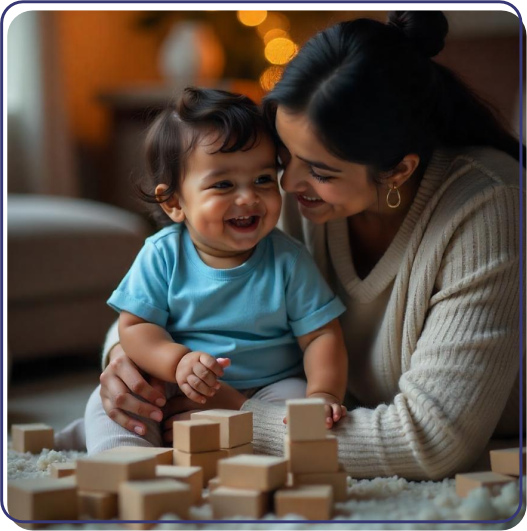Overview
People are equipped with senses such as sight, hearing, touch, smell, and taste that help us perceive the world around us and live in it. Each of the five senses is a doorway to our mind. Amazingly, our senses have the ability to convert real-world information into electrical information that the brain can process. The way we interpret this information– our perceptions– is what leads to our experiences of the world. Let me give an example. There is a big difference between watching a video with a resolution of 240 or 4K! The quality of incoming information results in the quality of brain processes and their outcomes. The more intelligent the “inner instruments” the person has – the deeper and more sophisticated brain processes take place which will result in how the person performs in life at different levels – how one feels, studies, communicates, handles different challenges, works, and creates.
Each lesson is designed in a way to cover physical, sensory, vision, hearing, smell, socio-emotional and cognitive development.
The activities and games we provide help children hone their coordination, balance, gross-motor skills (large movements like crawling and walking), and fine-motor skills (smaller movements like picking objects up).

The physical activities are done as individual activities aiming the understanding of the body (at this age children don’t “feel” their bodies) as well as pair and group activities when children learn coordinative and rhythmic movements: they coordinate their body movements, start seeing the others, comparing with others, tuning with others. This type of attention leads to understanding space and time: where is my body in space, and how to coordinate with others in a tuned way (the actions which depend on using space and time concepts). Surprisingly, the rhythmic patterned movements in groups are very useful for learning such complicated concepts!
Visual input at this age has the most profound effect on a child’s developing nervous system. Experts agree visual health plays a key role in helping the brain function properly. “Blurry vision equals a blurry brain,” said Dr. Lynn Greenspan, optometrist at The Eye Institute. “With bad input, the brain doesn’t receive a complete picture and needs to work hard to fill in missing details.”
Every lesson your child will have vision-stimulating activities: different types of puzzles and games.
By stimulating vision development, we can improve reading and language skills, social development, and even physical development because they affect hand-eye coordination.
The same is with hearing, if the brain has to work extra hard to make sense of what one hears, it can take a toll on cognitive function. By developing hearing, we also expand the ability to learn new languages which in turn results in overall brain development.
But not only language development is dependent on your child’s ability to hear. Their listening skills also influence their ability to learn to both read and write and it greatly influences their social skills as well.
At the lessons, the children will expand their hearing by listening to different types of sound – natural (sounds of nature, animal, and bird sounds) as well as artificial, different types of musical instruments (Indian and western). They will learn to play simple musical instruments (xylophones, shakers). Much attention is given to learning the rhythmical patterns.
Special attention is given to socio-emotional development. Despite the early age, we focus our attention on activities that help to establish meaningful relationships between kids and their parents by doing the work in pairs or in a group, sharing responsibilities and tasks, helping and cooperating, by learning to express emotions and see the emotions of others and respond to them accordingly.
Cognitive development includes basic concepts: counting, colors, shapes, basic English vocabulary (nouns, adjectives, verbs), communicative skills, performing skills (puppet theater), etc.
As the toddlers are accompanied by one of their parents it gives a great chance for parents to bond with their kids, giving them a feeling of care and a positive perception of new things. The parents are advised to continue the activities which were at the lessons at home, so the child gets most of it.
